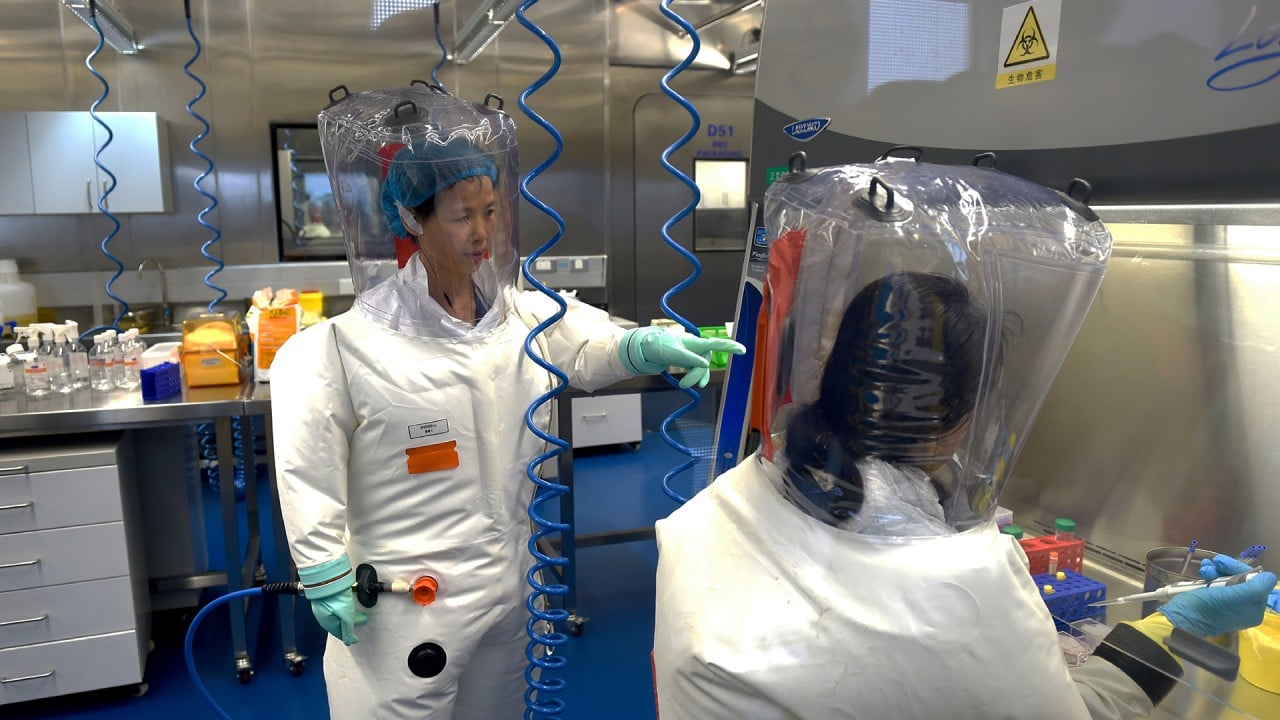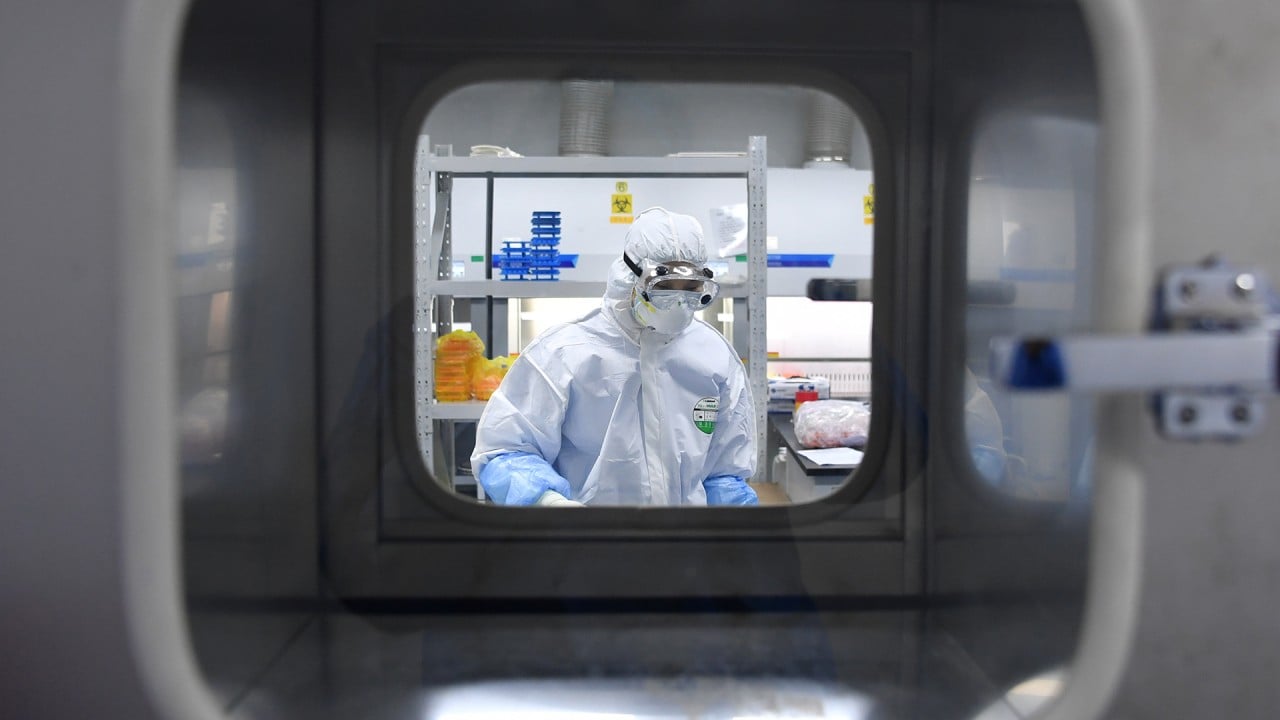
US urged to abide by one-China principle in top diplomats’ phone call
- China’s Yang Jiechi calls for stability in the Taiwan Strait in first conversation with Secretary of State Antony Blinken since Alaska meeting
- Yang also calls on US to respect science and not spread the Wuhan lab leak theory
Speaking with US Secretary of State Antony Blinken, Yang Jiechi, head of the Communist Party’s foreign affairs office and a Politburo member, also said China opposed the politicisation of the origin of the Covid-19 virus.
Boris Johnson’s China balancing act faces test as G7 comes to town
According to a readout of the meeting released by state media, Yang said China sought neither confrontation nor conflict with the US but would firmly defend its sovereignty and security.
“We urge the US side to stick to the consensus agreed by the leaders of both countries in their phone call at the Chinese New Year, to push China-US relations back to the correct track,” he said.
Yang said the Taiwan issue was a matter of core interest to China and called on the US to “properly handle Taiwan-related issues with caution”.
Beijing regards the self-ruled island as a renegade province to be returned to the mainland, by force if necessary.
In a reference to the theory that coronavirus escaped from a laboratory in the central Chinese city of Wuhan, Yang urged the US “to respect facts and science” and not politicise the source of the virus, but to focus instead on global cooperation in the fight against the disease.
“China supports international pandemic cooperation, and opposes any vile attempts to smear China using the pandemic,” he said.
Alaska summit: for China and the US, a narrow road through deep divisions
The US State Department said the two men discussed North Korea, and the detention of US and Canadian citizens in China.
Blinken stressed the importance of transparency on the origin of Covid-19, including the need for a second phase of WHO studies in China, the department said.
He also “called on Beijing to cease its pressure campaign against Taiwan and peacefully resolve cross-strait issues”.
According to a report by state news agency Xinhua, Yang also said the US should not form a “small clique” to contain China, and multilateralism should be based on international law and the principle of mutual respect.
“This is not the pseudo-multilateralism that is about forming small cliques and power politics,” Yang was quoted as saying.
“The US should fix serious violations of human rights in their own country, rather than blatantly interfere in other countries’ affairs under the guise of human rights,” he said, rejecting Western criticism of China over human rights.
Meanwhile, three US senators visited Taiwan early this week taking a military aircraft, prompting furious response from the Chinese defence ministry that Beijing would protect its sovereignty over Taiwan at all cost.
Senior trade officials from Taiwan and the US on Thursday also held virtual talks to discuss the resumption of long-stalled economic talks that Taipei has hoped would lead to a free-trade agreement between the two sides.
Lu Xiang, a senior fellow with the Chinese Academy of Social Sciences, said the landing of a military transport plane in Taiwan was “the most severe and unnecessary provocation” by the Biden administration towards Beijing.
He said China needed to stress the red line in bilateral relations and the US needed to clarify its policy on Taiwan.
He also said that after five months of reviewing its policy on China, the Biden administration should have a clearer picture of its position and how much it support it could get from its allies.
“A chaotic situation is not good for either side. Both countries are expected to increase interactions in the second half of the year. China also hopes the two countries can work out a set of rules for exchanges,” Lu said.
Li Xing, a professor of international relations at Aalborg University in Denmark, said Blinken’s decision to call Yang signalled to other G7 countries that Washington was still open to communicating with China.
“There’s definitely a desire here to ease the concerns of other countries who are worried about being forced to choose the US or China,” he said.
Li said Yang’s reference to the Wuhan lab leak theory was a clear signal to Washington that Beijing would not tolerate another investigation of any kind in the city where the world’s first Covid-19 outbreak was recorded.
“China is already guessing that calls for another investigation are designed to overturn the conclusions reached by the joint World Health Organization-China team that was in Wuhan,” he said.
Additional reporting by Eduardo Baptista




